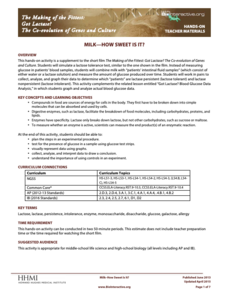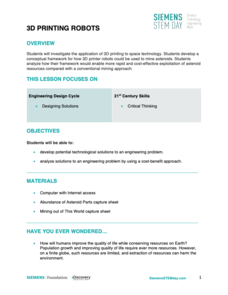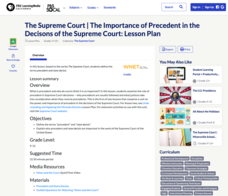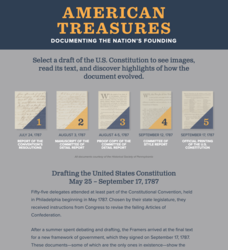US National Archives
WWII: Western Europe 1939-45 – D-Day
D-Day, also known as the Normandy Invasion, was a true turning point for the Allied forces and one of the most successful campaigns of World War II. After researching the factors that contributed to the campaign's success, high schoolers...
US National Archives
WWII: Western Europe 1939-45 – Deception and Bluff
World War II left the British desperate for help in any form—including in the form of a magician! High schooler conduct research on Jasper Maskelyne, a stage magician who used his talents to deceive the Germans on the war front, before...
US National Archives
WWII: Western Europe 1939-45 – Battle of Britain
Had Britain not emerged as the victors of the 1940 Battle of Britain, World War II would have ended much differently—and the world as we know it would be catastrophically altered. Learn more about this pivotal moment that kept the Nazis...
US National Archives
WWII: Western Europe 1939-45 – Resistance and SOE
Germany seemed to be unstoppable in the early years of World War II, but the tireless and sacrificial work of the Special Operations Executive (SOE) helped to steer the war in another direction. After exploring primary source documents,...
US National Archives
WWII: Western Europe 1939-45 – Occupation
Warsaw, Poland, suffered much of the blunt of World War II—but according to Polish letters from the early days of Nazi occupation, other parts of the country were much worse off. High schoolers use the letters and contemporaneous...
US National Archives
WWII: Western Europe 1939-45 – Invasion
Without the benefit of history, Western Europe in the 1940's had no idea what was about to befall them. Class members use primary sources, including political cartoons, videos, and internal documents, to analyze how much of a threat...
ReadWriteThink
Webcams in the Classroom: Animal Inquiry and Observation
Boost observational skills with an inquiry-based lesson that takes scholars on a virtual field trip. With help from webcams, learners observe animals in a zoo or aquarium. Observations go into a journal and a discussion is held to review...
Howard Hughes Medical Institute
Milk—How Sweet Is It?
Have you ever wondered why some people are lactose intolerant? Participants test simulated patients in a hands-on lab activity to find out! They learn about lactose intolerance by performing an experiment, analyzing data, and drawing...
Discovery Education
3D Printing Robots
What is water worth to you? The answer probably depends on many different variables. Learners explore the value of water in space and what it takes to transport the resource to locations in a galaxy far far away. They then consider...
Chesterfield Township Elementary School
Gifted and Talented Enrichment Curriculum
Looking to start or support a Gifted and Talented program? An 80-page packet outlines grade-leveled lessons in all subject areas as school district's Gifted and Talented enrichment curriculum.
National Endowment for the Humanities
Revolution '67, Lesson 2: What Happened in July 1967? How Do We Know?
Even in a world in which dozens of participants and curious onlookers record every controversial event, the basic facts of what happened are often in dispute. Revolution '67, Lesson 2 explores 1967 Newark, New Jersey using an examination...
National Endowment for the Humanities
Revolution '67, Lesson 1: Protest: Why and How
To some people, protesting is as American as apple pie, but the factors that lead to protests can be as confusing to veteran activists as to today's youth. Revolution '67 explores the riots in Newark, New Jersey as a case study. Using...
PBS
The Supreme Court: The Importance of Precedent in the Decisions of the Supreme Court
People often hear the words precedent and Supreme Court together, but why? A resource on the Supreme Court includes a variety of discussion questions, handouts that guide young historians, a video about Nixon and the court system, and...
College Board
Random Variables vs. Algebraic Variables
Variables can vary in meaning. A reference material for AP® Statistics explains the difference between random and algebraic variables. It provides a hypothetical situation involving dice—great for use in a classroom situation.
College Board
Is That an Assumption or a Condition?
Don't assume your pupils understand assumptions. A teacher resource provides valuable information on inferences, assumptions, and conditions, and how scholars tend to overlook these aspects. It focuses on regression analysis, statistical...
College Board
Power in Tests of Significance
Test your knowledge of tests of significance. A curriculum model for AP® Statistics describes and defines power in terms of tests of significance. It also provides two classroom activities designed to investigate power and how it relates...
College Board
Special Focus: Inference
Statistics is all about making inferences! A lesson guide explains the meaning of inferences and how to use statistics to make them. The resource provides instruction as well as information about the topic on the AP® Statistics exam.
Howard Hughes Medical Institute
Weighing the Evidence for a Mass Extinction Part 2: On Land
What can fossils tell us about periods of extinction? Young scholars interpret fossil layers to make conclusions about changes in life during different geological time periods. They analyze the fossils for abundance and diversity as well...
Judicial Learning Center
The Judge and the Jury: Trial by Jury
Why is it so important to have a trial by jury in the American judicial system? This right is one of the hallmarks of American democracy, but it also comes with the responsibility of serving on a jury if called. Young legal scholars...
National Constitution Center
Explore Rights Around the World
How has the American Bill of Rights influenced the rest of the world? An interactive web activity helps individuals see the similarities between countries' bills of rights. A text-to-text tool compares the American Bill of Rights to...
National Constitution Center
Civil Liberties and Rights Worldwide
How do governments differ in how they protect human rights? While the United States prides itself on its Bill of Rights, other countries have their own ways of protecting citizens' liberties. An interactive website, paired with...
Judicial Learning Center
About Federal Judges: Qualifications of Judges
"Help Wanted: A Supreme Court Justice." What should be included in the ad? Learners ponder the question during a lively activity that asks them to examine the qualifications for various federal offices and then create job postings....
National Constitution Center
American Treasures
Just how long did it take the framers to write the Constitution? What role did the drafting process play? Scholars examine various drafts from the Constitutional Convention to gain a better understanding of its formation. Interactive...
National Constitution Center
Writing Rights: The Bill of Rights
Where did the cherished ideals enshrined in the Bill of Rights originate? While history gives the Founding Fathers much of the credit, laws in colonial America influenced the Bill of Rights. An interactive web-based activity allows...

























